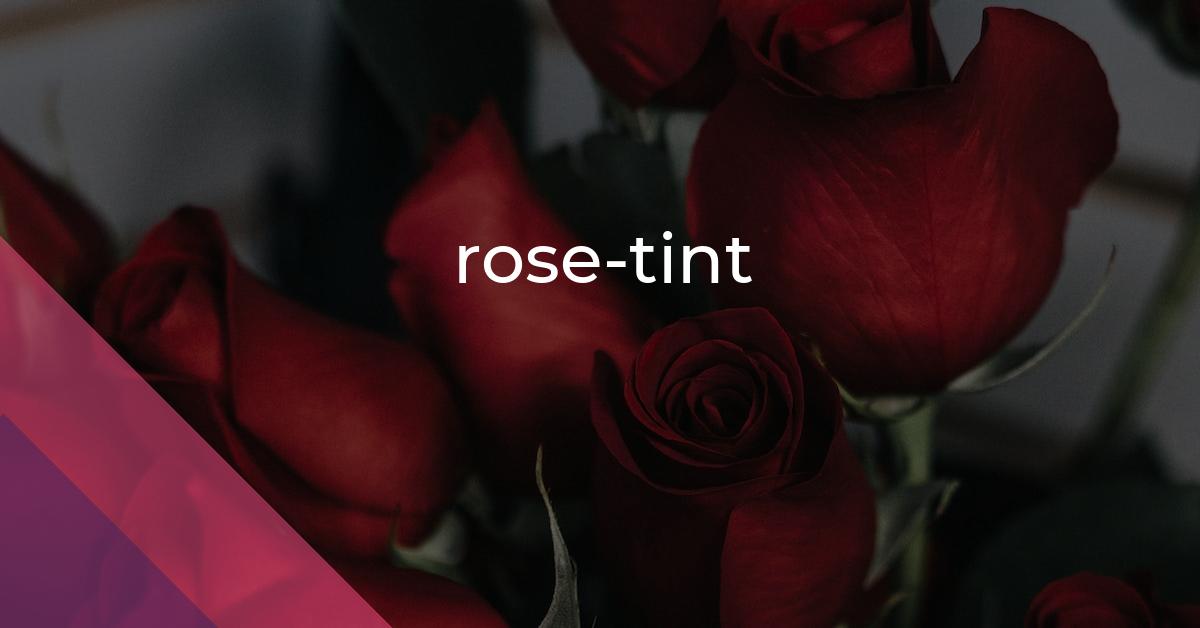rose-tint: Idiom Meaning and Origin
What does ‘rose-tint’ mean?
The idiom "rose-tint" refers to viewing or perceiving something in an overly optimistic or idealistic manner.

Idiom Explorer
The idiom "see things" means to perceive or experience something in a particular way, often different from reality. It implies a subjective understanding or interpretation of a situation or event.
The idiom "see the trees through the forest" means to focus on small details and lose sight of the overall picture or main idea. This can happen when someone becomes too absorbed in the minor aspects of a situation and fails to understand the larger context or objective.
The idiom "see the dark side of the moon" refers to experiencing or witnessing the hidden or negative aspects of a person, situation, or thing.
The idiom "seeing is believing" means that someone is more likely to believe something when they see it with their own eyes, rather than simply hearing about it or being told about it by someone else.
The idiom "run for the roses" means to compete in something prestigious or valuable, particularly in a horse race.
The idiom "rough around the edges" means that someone or something may appear imperfect or unrefined, but still has potential or qualities that make them interesting or valuable.
The idiom "rose garden" metaphorically refers to a situation or place that appears pleasant and peaceful, but is, in reality, filled with hidden dangers or difficulties.
FAIL
"Rose-tint" is an idiom that represents a positive and optimistic view of something. It's derived from the concept of looking through rose-colored glasses, which gives a rosy or pinkish perception of the world. This idiom is commonly used in English and can be found in literature, conversations, and even popular culture.
The origins of the term "rose-tint" can be traced back to the early 19th century. The phrase "rose-colored glasses" was first mentioned by American author Nathaniel Hawthorne in 1861. Over time, it gained popularity and eventually became the idiom "rose-tint." This metaphorical use suggests an idealistic and positive way of seeing things.
In everyday language, the idiom "rose-tint" is often used to describe individuals who have a tendency to see the world in a positive light, even when faced with challenges or negative situations. It can also describe a temporary or naive perception, where someone may not fully grasp the reality of a situation.
The idiom "rose-tint" warns against the dangers of being overly optimistic or ignoring the negative aspects of a situation. It can be a cautionary term that reminds us to balance our optimism with a realistic perspective. While a positive outlook is important, it's essential to acknowledge the challenges and potential pitfalls that may arise.
In literature, "rose-tint" has been used to convey various themes and ideas. One notable example is F. Scott Fitzgerald's novel "The Great Gatsby," where the character Jay Gatsby symbolizes the "American Dream." Gatsby is portrayed as someone who views the world through a rose-tinted lens, constantly striving for an idealized version of reality.
The idiom "rose-tint" is not exclusive to English. Similar expressions can be found in other languages, such as the French phrase "voir la vie en rose," which translates to "seeing life through rose-colored glasses." This further highlights the universal concept of perceiving things in a positive light, regardless of any negative aspects.
The idiom "rose-tint" is widely used and signifies an optimistic viewpoint or perception. Its origins date back to the 19th century, and it has since become a part of everyday language. This metaphorical phrase is often employed to describe individuals who see the world through a positive lens. It also appears in literature to represent various themes and ideas. Overall, the idiom serves as a reminder to balance optimism with realism, emphasizing the importance of acknowledging both the positive and negative aspects of a situation.
Example usage
Examples of how the idiom "rose-tint" can be used in a sentence:
- She saw the world through rose-tinted glasses.
- He has a rose-tinted view of his childhood, always remembering the good times.
- Despite the challenges, they approached the project with a rose-tinted optimism.
More "Jargon" idioms



